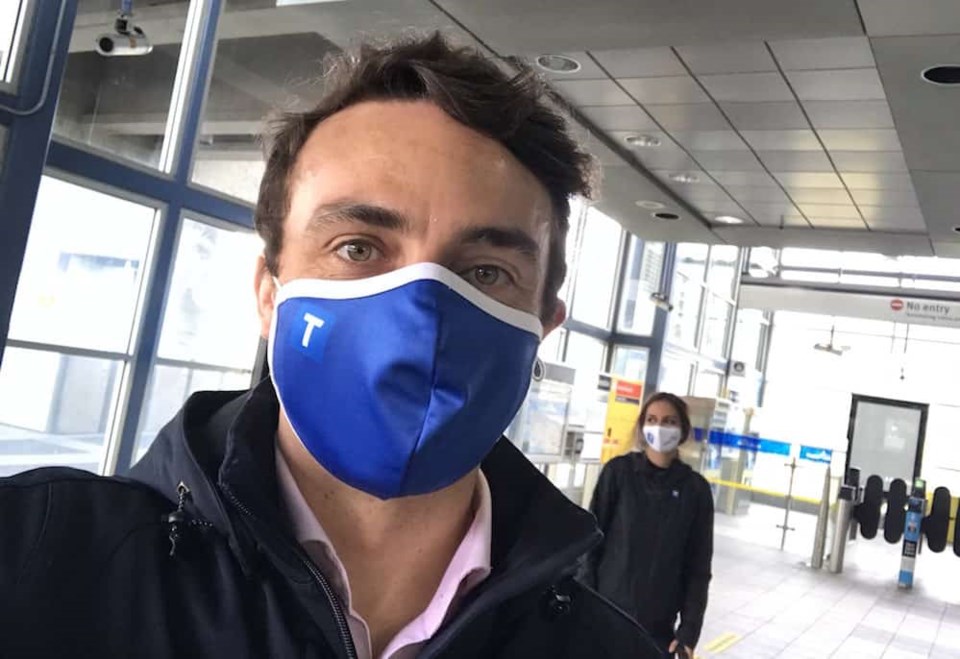TransLink states that it is procuring branded face masks in order to get more people wearing face masks on its Metro Vancouver transit network.
Last week, the transportation agency advised riders to wear non-medical masks or face coverings while waiting or on-board its vehicles. It also advised commuters to travel outside of peak hours and to stay home if they felt sick.
Now, TransLink Spokesperson Ben Murphy tells Vancouver Is Awesome in an email that the company looking into distributing its own branded face masks as part of a campaign that encourages customers to don face coverings.
“TransLink is procuring branded masks which will be part of a campaign around wearing face coverings while on transit in Metro Vancouver," he writes.
"We are recommending customers wear face coverings while on transit or waiting for transit, if they are able to do so."
Murphy adds that TransLink aims to normalize the use of face coverings on transit as much as possible, given that physical distancing will not always be possible.
"Face coverings help to make transit safer for everyone on board. We’ll be providing more details on these branded masks in the coming weeks,” he notes.
TransLink states that all front line employees have been issued masks, but wearing a mask is up to each employee's discretion – they aren't mandatory.
TransLink has stepped up its cleaning protocol to prevent the spread of COVID-19 across its system. In addition to daily cleaning schedules, it has increased bus and SeaBus disinfecting sprays to twice per week. Cleaning “pit crews” have also been deployed to disinfect SkyTrain cars at high traffic stations. Crew also maintain daily cleaning and disinfecting schedules on SkyTrain and West Coast Express cars, as well as HandyDART vehicles.
In order to create more space, the transit authority has laid out decals at bus stops and entraceways that incidicate safe, two-metre physical distancing. Service levels have also increased, which allows for more room on all modes of transit. However, TransLink adds that it is monitoring passenger loads in order to deploy additional service at times and on routes where physical distancing is more difficult.
- With files from the Burnaby Now.



